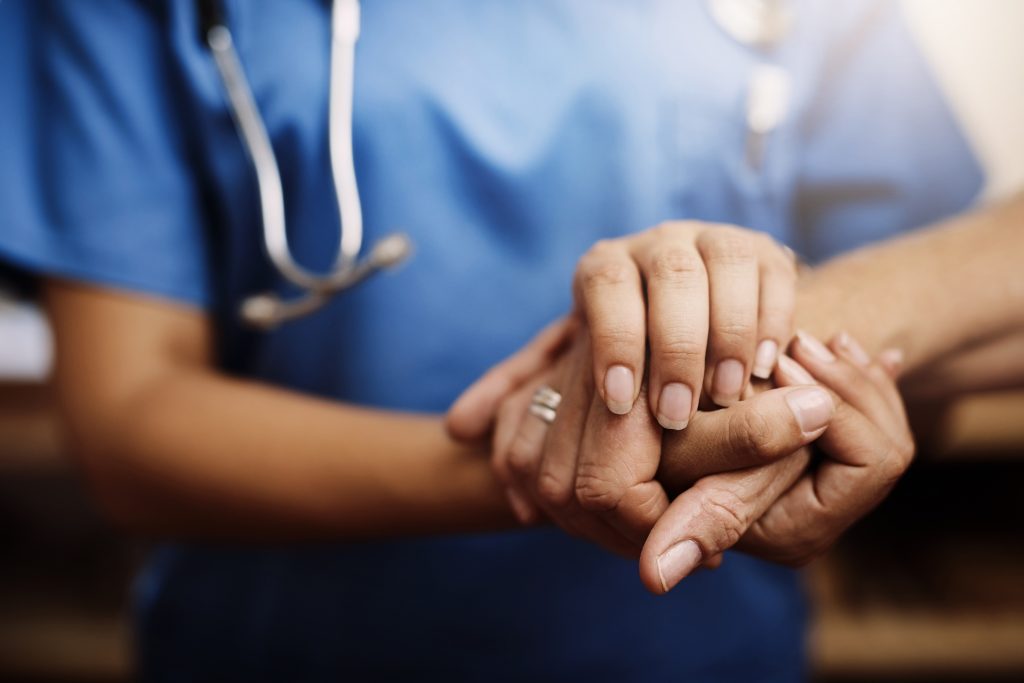Receiving a cancer diagnosis is one of the most frightening things a person may face. In fact, it’s a source of dread for many individuals. At the Cancer Center for Healing, we believe in preventative medicine and healthy habits, but we don’t believe in living in fear.
After receiving a cancer diagnosis, many people find themselves wondering how long they have left. This fear fuels a common and painful question: Why do people die so quickly after receiving a cancer diagnosis?
At the Cancer Center for Healing in Irvine, CA, we believe in addressing this fear with facts, compassion, and most importantly, hope.
The fact of the matter is that not everyone deteriorates quickly after being diagnosed with cancer. In fact, many people go on to live long, healthy, and meaningful lives after their diagnosis.
So why do some people die so quickly after a cancer diagnosis, while others live for years, even decades? The answer lies in the type of cancer, the stage at which it’s caught, the treatment approach, and a patient’s overall support system.
Let’s explore what really influences outcomes and why a cancer diagnosis should never be mistaken for a death sentence.
Understanding the Variables: Not All Cancers Are the Same
When people ask, “Why do people die so quickly after a cancer diagnosis?” they often don’t realize how much the progression of cancer depends on the specific type of cancer. Some cancers are incredibly aggressive, while others grow slowly over time. For example, pancreatic and glioblastoma cancers are known for rapid progression, while prostate or certain types of thyroid cancers may remain manageable or dormant for years.
So, when asking why people die so quickly after receiving a cancer diagnosis, it’s important to consider the biology of the cancer itself. Fast-growing tumors can overwhelm the body quickly, especially if they aren’t caught in time. But with early detection and targeted treatment, even some aggressive cancers can be treated effectively.
Stage at Diagnosis: Timing Is Everything
Another major factor in why people die so quickly after a cancer diagnosis is when the cancer is found. Early-stage cancers are far more treatable than late-stage cancers. Unfortunately, some cancers show no symptoms in the early stages and are discovered only after they’ve spread to other organs. This can make treatment much more difficult and significantly affect survival rates.
If someone is diagnosed at Stage IV, for example, the disease may have already progressed to vital organs. That’s often when people ask, “Why do people die so quickly after cancer diagnosis?” It’s not the diagnosis alone; it’s the advanced stage and widespread impact of the disease.
This is why having regular screenings, paying attention to unusual symptoms, and knowing your family history can make a tremendous difference. Early detection saves lives.
Treatment Choices Matter
When wondering why people die so quickly after cancer diagnosis, another factor to consider is the type of treatment a person receives and how quickly they begin treatment. Delays in beginning therapy, improper treatment for the cancer type, or not addressing the underlying causes of cancer can lead to poorer outcomes.
At the Cancer Center for Healing, we believe in integrative cancer care, combining conventional treatment with holistic therapies to support the immune system, reduce inflammation, and improve overall quality of life. We’ve seen that when people receive personalized, timely care that treats not just the cancer but the whole person, outcomes often improve.
Sometimes patients choose to forgo treatment, especially if they are already in poor health or have advanced cancer. This may also explain why people die so quickly after a cancer diagnosis in certain cases: not because the cancer was untreatable, but because effective treatment wasn’t accessible, chosen, or started soon enough.
A Cancer Diagnosis Does Not Mean You Are Going to Die
It bears repeating: A cancer diagnosis is not a death sentence. The question “Why do people die so quickly after a cancer diagnosis?” can create a dangerous misconception that diagnosis equals doom. This belief is both outdated and harmful.
Many people live for years with cancer. Some are completely cured. Others live with it as a chronic condition, managing it with ongoing care. Advancements in cancer research, diagnostics, and treatment options have changed the landscape dramatically over the past few decades.
At the Cancer Center for Healing in Irvine, we’ve seen patients come to us after being told they had weeks to live, and after holistic integrative care, they’re still thriving months or years later. You are not your prognosis.
The Role of the Mind, Spirit, and Support
While it may sound surprising, a person’s mindset and support system can also influence why some people seem to decline quickly. A new cancer diagnosis can bring immense emotional distress, anxiety, and even depression. When patients feel isolated, hopeless, or overwhelmed, they may struggle to cope physically and emotionally.
This may contribute to the perception that people die quickly after cancer diagnosis, especially when mental and emotional support isn’t in place. At the Cancer Center for Healing, we incorporate emotional support, spiritual care, and community resources into our integrative cancer treatment. Healing must happen on every level, not just in the body.
Taking the Next Step
If you or someone you love has recently been diagnosed with cancer, you may be searching desperately for answers. You may even be afraid, wondering if people die quickly after cancer diagnosis and whether that might happen to you.
Our message is simple: Don’t lose hope. Your outcome is not determined by your diagnosis alone. It depends on the type of cancer, the stage it was caught, the treatment path you pursue, and your overall support system.
The Cancer Center for Healing offers compassionate, comprehensive care that’s designed to strengthen your body, inform your choices, and empower your future. Whether you’re looking for a second opinion or a full care plan, we’re here for you.
Final Thoughts: Changing the Narrative
At the Cancer Center for Healing in Irvine, CA, we are actively working to change the narrative around cancer diagnosis. Most people feel hopeless and alone when facing this health condition, but the truth is that there is hope and support available for you.
Instead of asking why people die so quickly after cancer diagnosis, let’s instead ask more productive questions: What can we do to improve outcomes? How can we detect cancer earlier? How can we treat the whole person, not just the disease?
These are the right questions to ask, and they’re part of our approach for treating cancer in Irvine, CA. If you’re looking for a cancer treatment that is more than traditional, contact us today.


















